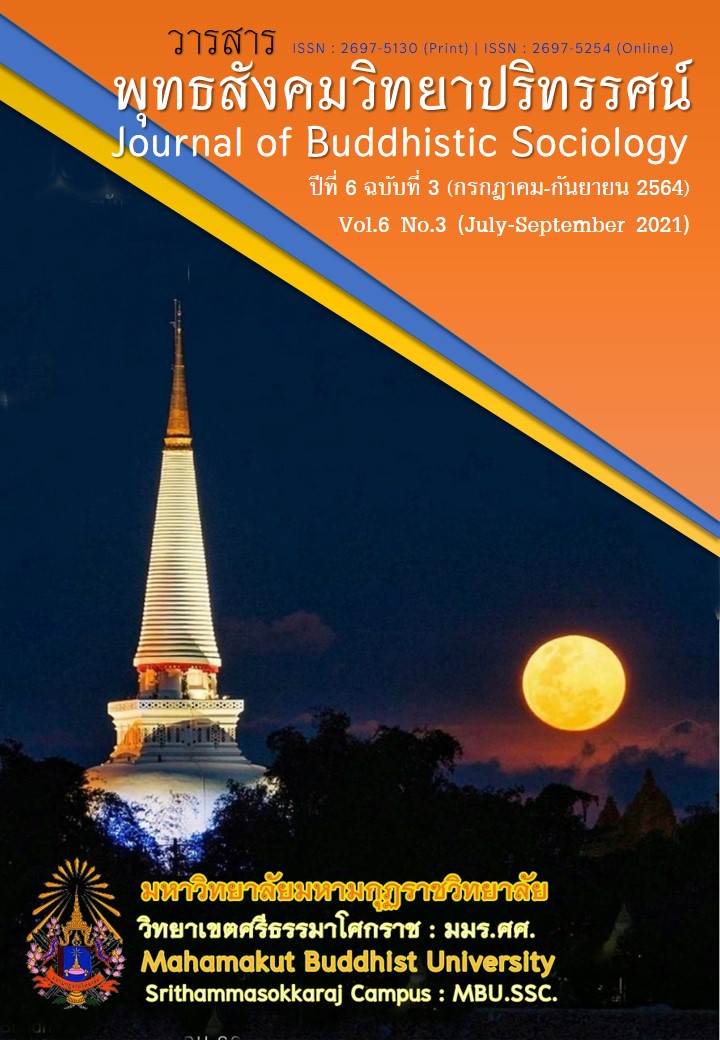DISRUPTIVE INNOVATION IN SOCIAL STUDIES TEACHING
Main Article Content
Abstract
Over the past year, the COVID-19 epidemic has hit a wide variety of dimensions worldwide. The pandemic has impacted many aspects of the educational community, from the opening to closing the school, forcing many children to leave school. It has caused more educational disparities. Many educational institutions have had to adapt themselves. It has led to applying new technologies and innovations in education that enable children to learn at their own pace in different ways, becoming new models that fit the context of each area around the world. The transformation of education from a walk-through model to an alternative and new adaptation has shown that the education industry can adapt itself towards the goal.
Social studies teachers in this Disruption Innovation Era must have skills or knowledge about modern technology and use those technologies as a tool for learning management in an age where technology plays a role. The reason for having these skills and knowledge is to attract students to become more interested in learning. If the teachers continue the same practice without learning new things, they may be lagging or prepare to be replaced by something new. Because of the non-stop development, this development is caused by “humans” to meet the needs of “humans.” Innovations have been developed that benefit a group of people and may cause another group to lose their benefit. Therefore, it may not be new, but it can be called that it is a choice for each individual or organization to remain idle and allow time to pass until it is changed, or choose to change yourself first before anyone else comes to change you.
Article Details
References
ทิศนา แขมมณี. (2559). ศาสตร์การสอน: องค์ความรู้เพื่อการจัดกระบวนการเรียนรู้ที่มีประสิทธิภาพ. (พิมพ์ครั้งที่ 20). กรุงเทพมหานคร: โรงพิมพ์แห่งจุฬาลงกรณ์มหาวิทยาลัย.
พิชิต ฤทธิ์จรูญ. (2559). เทคนิคการวิจัยเพื่อพัฒนาการเรียนรู้. กรุงเทพมหานคร: โรงพิมพ์แห่งจุฬาลงกรณ์มหาวิทยาลัย.
พิสณุ ฟองศรี. (2551). วิจัยชั้นเรียน: หลักการและเทคนิคปฏิบัติ. (พิมพ์ครั้งที่ 6). กรุงเทพมหานคร: ด่านสุทธาการพิมพ์.
ราชบัณฑิตสถาน. (2546). พจนานุกรม ฉบับราชบัณฑิตยสถาน พ.ศ. 2542. กรุงเทพมหานคร: นานมีบุคส์.
วิชัย วงษ์ใหญ่ และ มารุต พัฒผล. (2562). การจัดการเรียนรู้ในยุค Disruptive Innovation. กรุงเทพมหานคร: ศูนย์ผู้นำนวัตกรรมหลักสูตรและการเรียนรู้.
ศศิมา สุขสว่าง. (2558). Disruptive Innovation คืออะไร. เรียกใช้เมื่อ 5 เมษายน 2564 จาก https://www.sasimasuk.com
สุพล พรหมมาพันธุ์. (2560). Disruptive Innovation เมื่อโลกใบใหม่ไม่ใช่ใบเดิมกับนวัตกรรมพลิกโลก. เรียกใช้เมื่อ 5 เมษายน 2564 จาก https://www.spu.ac.th/activities/15535
Clayton Christensen. (1997). The Innovator's Dilemma : When New Technologies Cause Great Firms to Fail. United States: Harvard Business Review Press.


